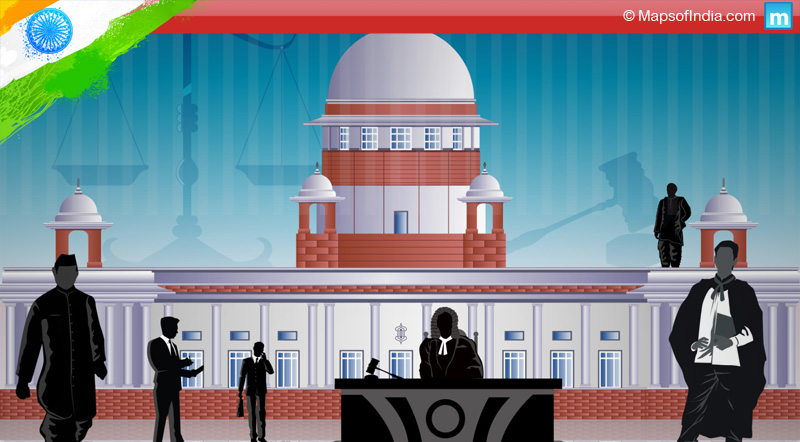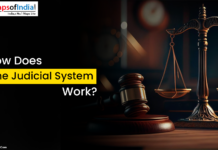Contempt of court act 1971 defines a person’s behaviour that defies a court’s authority, justice, and dignity. For example, it showcases irreverence to the judge or other attorneys or causes chaos in the courtroom.
The contempt gets divided into two parts, namely criminal contempt and civil contempt. Criminal contempt implies the publication (whether by words, spoken or written, or by signs, or by visible representations, or otherwise) of any subject or practising any other act which “scandalises or tends to scandalise, or lowers or tends to lower the authority of, any court; or prejudices, or interferes or tends to interfere with, the due course of any judicial proceeding or interferes or tends to interfere with, or obstructs or tends to obstruct, the administration of justice in any other manner”.
Civil contempt refers to voluntarily disregarding any judgment, decree, order, direction, writ or other processes of a court or willful violation of an undertaking provided to a court.
The higher courts of record can reprimand those passing comments against judges of the courts and the respective proceedings. The primary purpose of the jurisdiction is to act as a safeguard and maintain the worth of the court with the due administration of justice.
Article 129 of the Indian Constitution of India mentions, “The Supreme Court of India shall be a court of record and shall have all the powers of such a court including the power to punish for contempt of itself.” Moreover, Article 142(2) allows the Supreme Court to probe and punish for any contempt of itself. For example, contempt of the Supreme court itself.
When it comes to consequences, according to section 12 in the contempt of court, 1971, “punished with simple imprisonment for a term which may extend to six months, or with fine which may extend to two thousand rupees, or with both”.
Months back, lawyer and activist Prashant Bhushan was charged with contempt charges for his remark on social media scandalising the former Chief Justice of India SA Bobde and the institution. The judge imposed a token punishment of a Re 1 fine on him following the incident. Recently, Comedian Kunal Kamra was also served the contempt notice for his tweets on the institution. He submitted a 6-page long affidavit that focused on not having any ill-intention to defame the judiciary in his defence.
The case of PN Dua v Shiv Shankar and others witnessed a remark by the apex court that stated that the court’s mere criticism does not invite contempt of the Court. It further said that in a free marketplace of innovations, criticisms about the judicial system or judges should be treated well until they do not become an obstacle to the administration of justice.
Protection against misuse of the act
It comprises provisions that mention cases that do not invite contempt and cases where contempt is not punishable. These provisions showcase that the courts will not prosecute all cases of contempt. Section 13 of the act states, “no court shall impose a sentence under this Act for a contempt of court unless it is satisfied that the contempt is of such a nature that it substantially interferes, or tends substantially to interfere with the due course of justice.”




